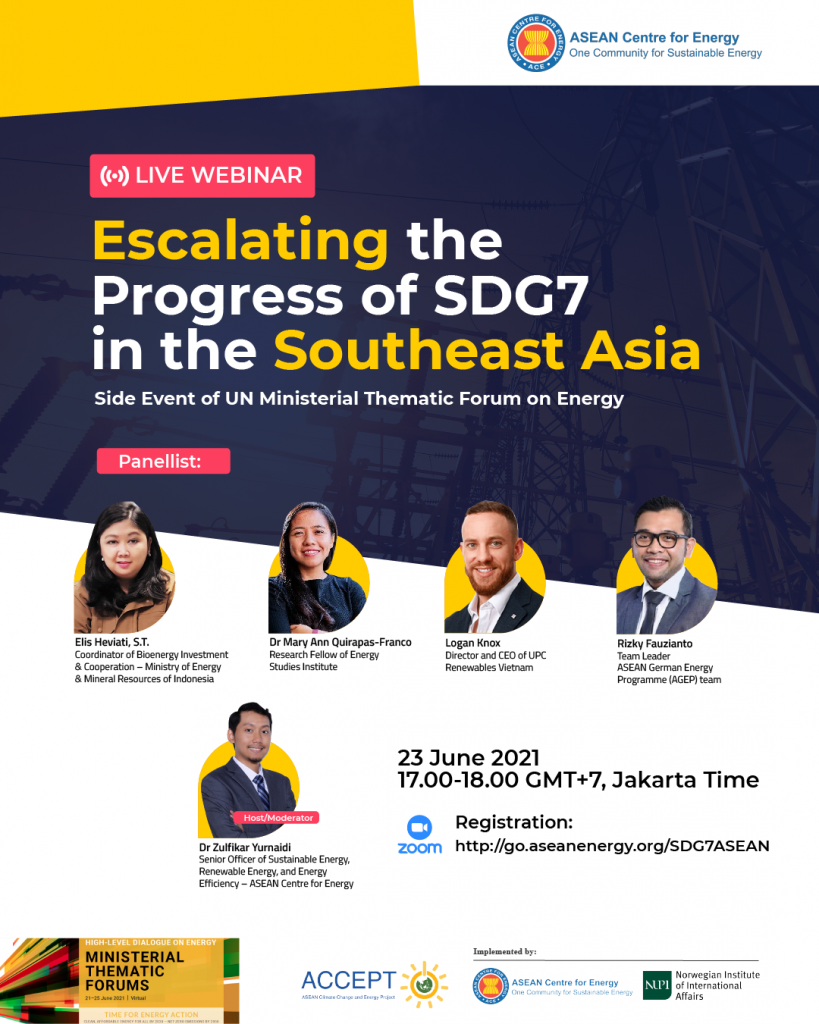Event starts: 23 June 2021 6:00 ET / 17:00 Jakarta. Join here.

This event is a part of Ministerial Thematic Forums for the High-level Dialogue on Energy held by United Nations 21-25 June 2021 (virtual).
The Southeast Asia region’s rapid economic growth, growing population, and pace of urbanisation are driving a continuing rise in energy demand. Meeting this rising demand is placing pressure on energy systems and challenging policymakers to meet energy needs while balancing commitments to global, regional, and national agendas on climate change and sustainable energy. Decisive action by the region’s policymakers is needed to decarbonise and expand energy systems sustainably, deliver modern energy services equitably, and stimulate socio-economic development.
The urgency of the sustainable energy transition has only become more pressing in light of the recent setbacks that nations have experienced due to the Covid-19 pandemic. Tracking the region’s progress towards achieving targets under Sustainable Development Goal 7 (SDG7), e.g., ensuring universal access to electricity and clean cooking, increasing the renewable energy share of the energy mix, and accelerating energy efficiency, serves to illuminate the trends and challenges leading up to 2030.
This webinar will bring the discussion between the experts to identify the needed efforts in escalating the progress and tackling the challenges of rapidly evolving energy markets. The focus of the discussion is how to improve the robustness of energy policy and planning to reduce investment risks. Hence, ASEAN can be a sustainable, equitable, and resilient energy community in reaching the SDG7 by 2030.
This event is organised by the ASEAN Climate Change and Energy Project (ACCEPT) of the ASEAN Centre for Energy (ACE). ACCEPT is the first energy cooperation project in collaboration with the Norwegian Government under the Norwegian-ASEAN Regional Integration Programme (NARIP). It aims to support ASEAN in improving the coherence between the ASEAN energy and climate policies and contribute to more climate-friendly development of the energy sector.
To address the gap of regulatory frameworks hence to strengthen investment environment and reduce the associated risks, through a knowledge-sharing with the representative from government, private company, academia and development institution.
Register now: https://us02web.zoom.us/webinar/register/WN_Jt15dvlZRv-5oLdCIQ8VWQ
Public
Online
